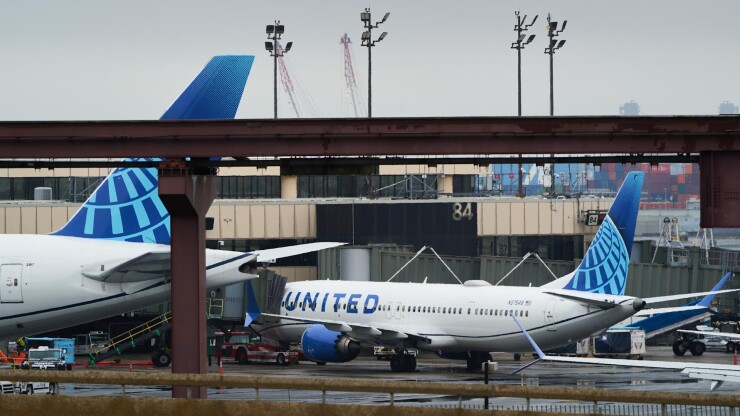
Moody's Ratings revised its outlook for the U.S. airport sector to negative from stable, citing an expected hit to air travel from the global trade war as a key reason for its view.
The rating agency anticipates enplanements — or the number of people boarding a flight — to decline modestly this year due to a deceleration in U.S. economic growth, it said in a report this week.
"The ripple effects from tariffs and trade tensions will curtail leisure and business travel," Moody's analysts led by Ursula Cassinerio wrote. "Still, we do not expect enplanement losses to be as severe as past economic downturns."
The revision comes as an increasing number of airlines are withdrawing earnings outlooks on concerns over how President Donald Trump's trade policies will impact their businesses. American Airlines Group Inc. and Delta Air Lines Inc. are among the companies that pulled earnings guidance last month.
Rising Inflation
Rising inflation and
It projects U.S. real GDP growth will slow to 1% this year, while inflation will accelerate by 3.2% this year, compared to a forecast of a 2.5% in February.
At the same time, many airports across the country are in the midst of multi-billion-dollar capital upgrades, and trade tensions that strain supply chains will drive up the costs of materials for construction. While these projects cannot be halted mid-construction, an increase in costs will likely lead to additional debt, the agency said.
"Many airports, however, are using guaranteed maximum price contracts for capital plans, limiting the impact of cost increases," the analysts wrote. "We expect the contractual strength of these agreements to be tested as parties enter into force majeure disputes to recover higher costs due to tariffs."
Domestic travel is likely to slow as major airlines, including both legacy and low-cost carriers scale back services. International visitor volumes could take a hit, particularly from key markets like Canada and Western Europe, as travelers react to tariff and immigration policies, Moody's noted. That puts major U.S. airports that serve as key gateways to international travelers at greater risk.
Moody's said it would revise its outlook back to stable if passenger traffic resumes growth, macroeconomic conditions improve and airline capacity remains steady.





